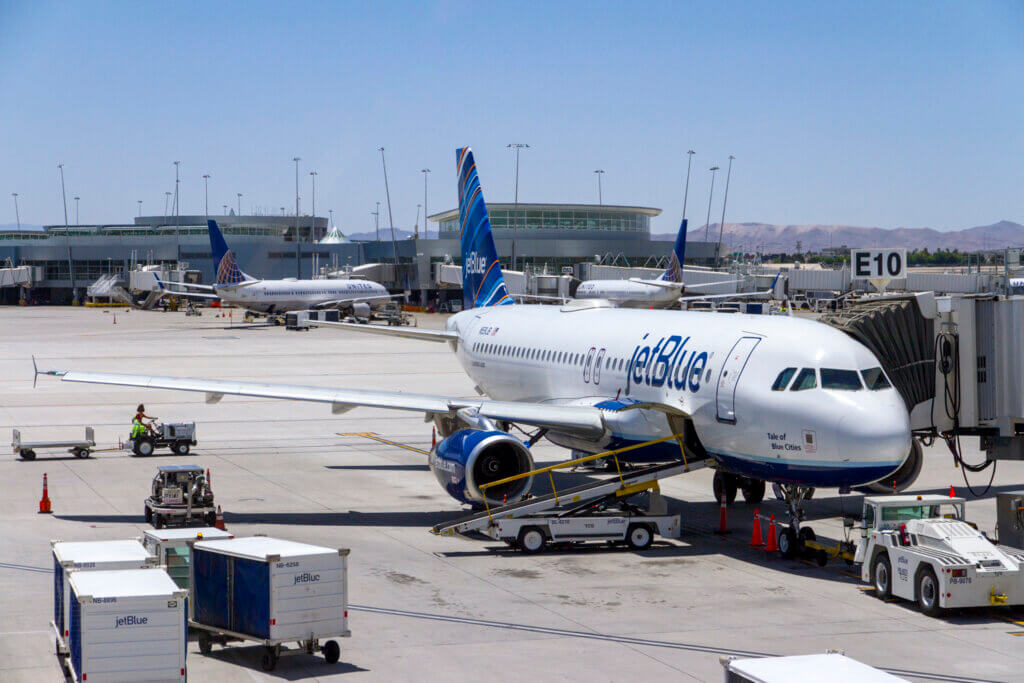As if it has finally seen the writing on the wall, JetBlue calls off its merger with Spirit, as both airlines must now find a way to remain solvent on their own. Of course, whether one or both will be able to or not remains to be seen.
Back in January, Massachusetts District Court Judge William Young declared that the proposed JetBlue-Spirit merger violated the Sherman Act. I won’t get into all his reasoning here, but the main points of his argument were that the airlines had an enormous level of overlap, and the elimination of Spirit would drive airfares up.
It’s no secret that JetBlue would, in fact, eliminate Spirit and its model, which may cause airfares to increase in markets where JetBlue and Spirit compete and which don’t have service from a competitor such as Frontier or Allegiant. However, the two airlines argued that not allowing them to merge could cause them to fail and lead to the same outcome anyway. As we all know, Young didn’t buy this argument and blocked the merger.
Following Young’s ruling, JetBlue indicated that it would appeal. However, it seems that the airline’s management has had a change of heart as JetBlue calls off its merger with Spirit.
JetBlue Calls Off Its Merger With Spirit
On Monday, both airlines indicated that they didn’t think they’d be able to overcome the legal and regulatory hurdles ahead of them, especially not by the contractually mandated July 2024 deadline. At least, that’s what the airlines said in public. After all, the merger was always questionable, with JetBlue offering to pay obscene amounts of money to an airline that’s in a similar financial position as itself.
That’s why news that JetBlue calls off its merger with Spirit doesn’t surprise me one bit. The proposal was always on shaky ground, with even more questionable economics and tremendous regulatory headwinds. To me, as others have already been saying, the combination of the recent ruling against them, along with both airlines’ continued financial struggles, meant that they both saw the writing on the wall – doubly so for JetBlue’s new management. And it would appear that investors agree, with JetBlue closing 4.3% higher on Monday, though Spirit was down by over 11%.
So, what next? Well, JetBlue now owes Spirit $69 million, on top of the hundreds of millions they’ve already paid throughout this two-year-long process. Both airlines will now have to find their way on their own, which, ironically, will probably be easier for Spirit than JetBlue. After all, JetBlue’s entire strategy for the past couple of years has centered on this merger, while Spirit has always been planning on needing to remain independent.
Of course, that one will survive since JetBlue calls off its merger with Spirit over the other is not a foregone conclusion. Both will have to work very hard to achieve profitability, doubly so for JetBlue, as they lost out on, not only their merger with Spirit, but also their Northeast Alliance with American Airlines.
Final Thoughts
Honestly, despite JetBlue’s share price surge Monday afternoon, I think they’re the most at risk of not surviving of the two. Not only because of their strategic fumbles and overreliance on the merger, but they literally have no strategy whatsoever. Everything is trying this or that in hopes that something sticks. That’s not a good way to run an airline, especially in this environment.
Here in Hawaii, I know news that JetBlue calls off its merger with Spirit will rekindle doubts about the Alaska-Hawaiian merger. However, the two aren’t alike, other than being two airline mergers. For one, Alaska and Hawaiian operate under fairly similar models (both are legacy carriers) versus the LCC and ULCC pair-up that JetBlue and Spirit are. Hawaiian and Alaska also have comparatively little route overlap, and nearly all of their shared routes have tons of competition on them.
Yes, while I believe the Alaska-Hawaiian pairing has a better shot, it doesn’t mean that it’s a sure thing. They can still be denied, too, though I hope not.

